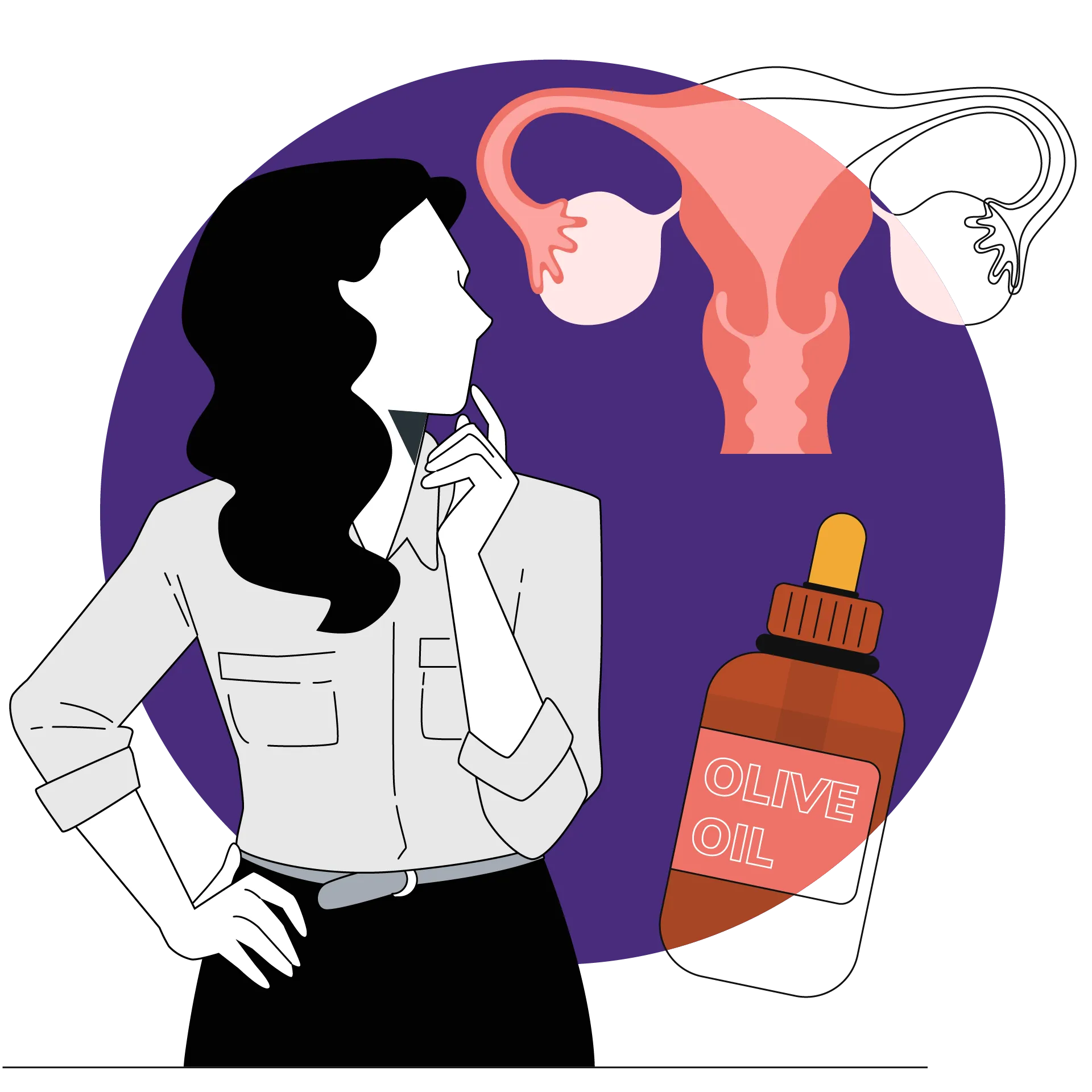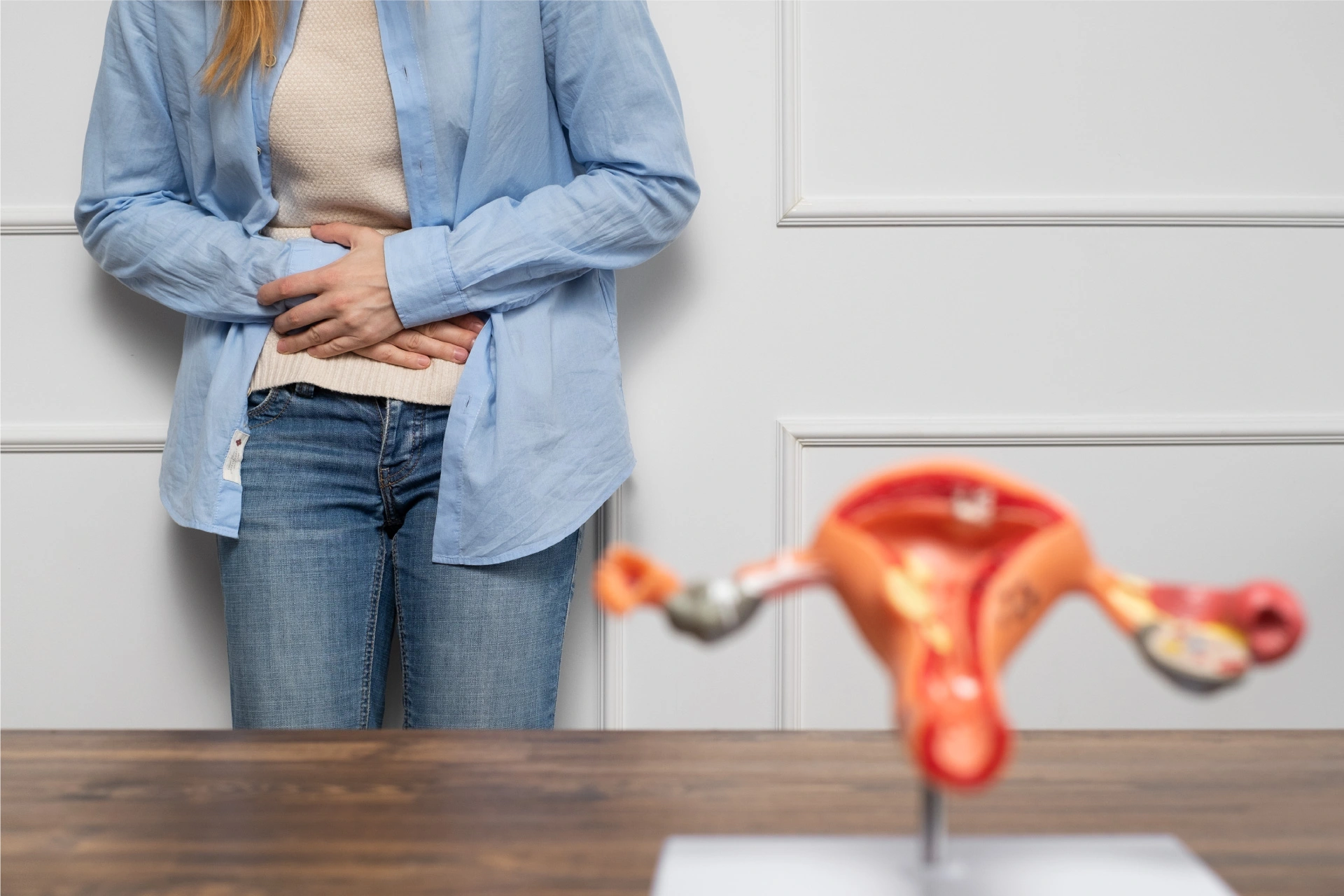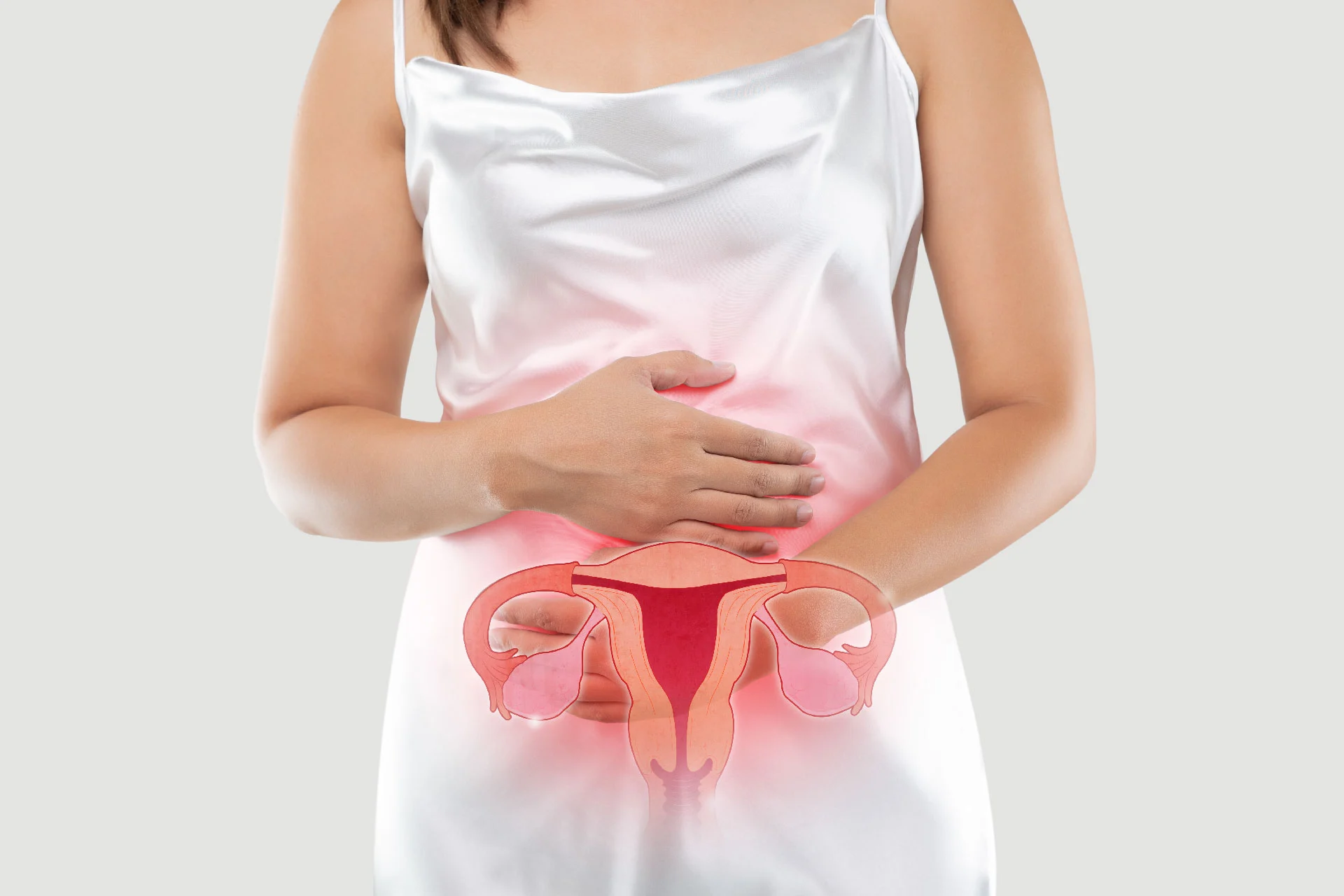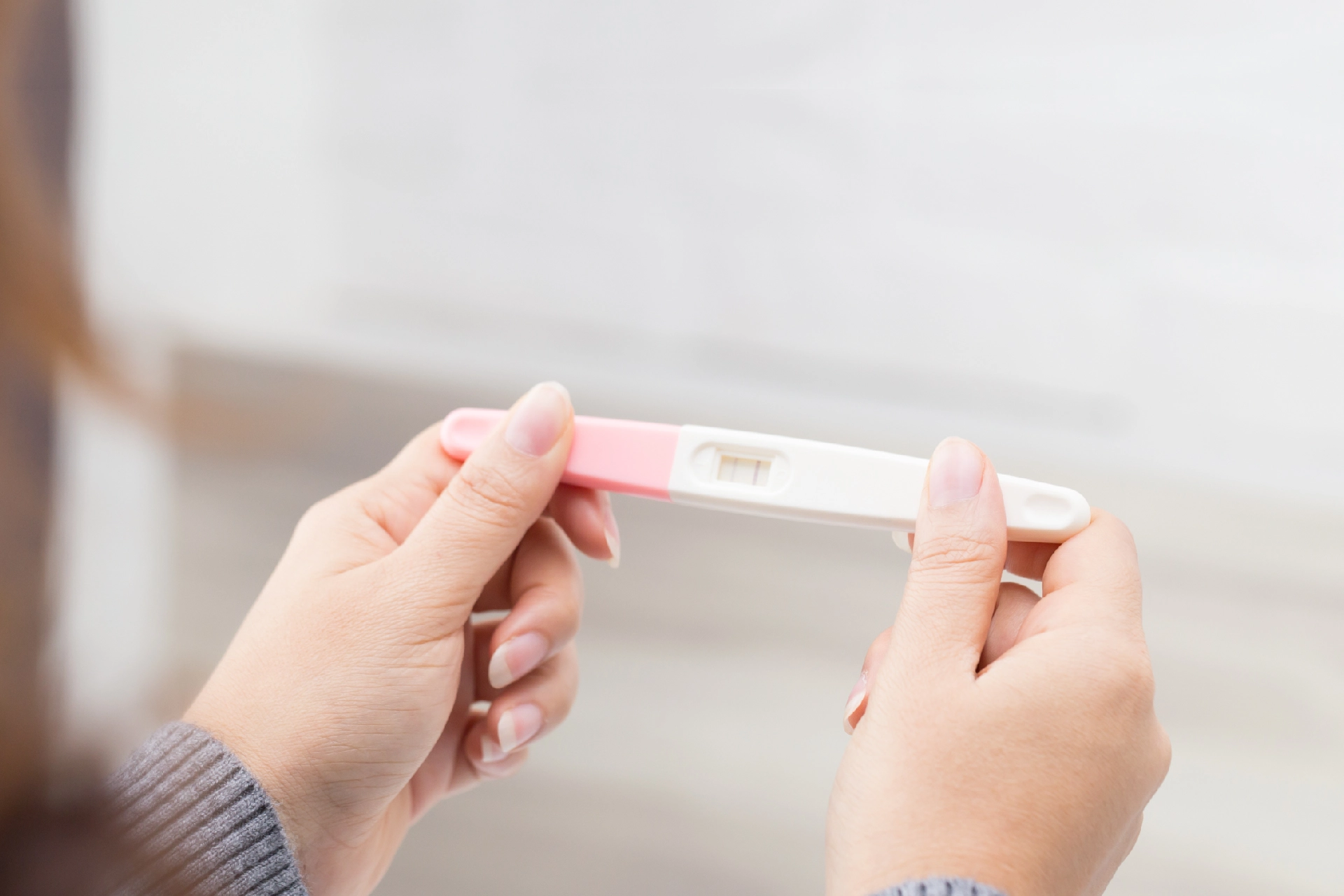Gynaecologist and Obstetrician | 8 min read
Vaginal Dryness: Meaning, Symptoms, and Treatment
Medically reviewed by
Table of Content
Key Takeaways
- Burning sensation and irritation are a few vaginal dryness symptoms
- Use a lubricant for vaginal dryness to minimize pain during sex
- Apply vaginal moisturizer regularly to keep your vagina moist
The vagina forms an important part of the female reproductive system. There is a thin moisture layer coated on the walls of a vagina, which is responsible for the organ’s alkaline environment. If not for its alkaline nature, it would be difficult for the sperm to travel and survive in the vagina. With the help of vaginal secretions, the vaginal wall gets properly lubricated so that the friction decreases during sexual intercourse. As women’s age increases, they experience changes in hormone production. Vaginal dryness causes irritation in your pelvic and vaginal areas.
These fluctuations in hormone levels can result in the thinning of vaginal walls. As a result, the number of cells that secrete moisture decreases, which causes vaginal dryness. This atrophy of vagina is common in women after menopause [1]. At times, you may experience vaginal inflammation as estrogen levels in your body reduce. Though hormonal fluctuations cause vaginal dryness, this isn't the only reason. To know more about this dryness meaning and remedies to tackle it, read on.
What is Vaginal Dryness?
Vaginal dryness is an unpleasant symptom, and it lowers one's quality of life. Sitting, exercising, urinating, or starting a physical relationship can hurt if you have vaginal dryness. Your uterine lining is often moisturized with fluid, keeping it thick and stretchy. When the cells in your uterus are thin, dry, and inadequately hydrated, it results in vaginal dryness. This causes discomfort, particularly when having a physical relationship.
At any age, vaginal dryness can occur. However, when estrogen levels start to decline during or after menopause in women or those who were allocated female at birth (AFAB), it is most prevalent. The hormone estrogen helps to keep your vaginal lining healthy and hydrated. Whenever your estrogen hormone levels are low, the vaginal walls become thin and dry. This is caused by vaginal atrophy, a common menopausal condition.
There is numerous secure and efficient vaginal dryness treatments available.
Additional Read: Menopause and PerimenopauseCause Of Vaginal Dryness
Vaginal dryness frequently occurs when estrogen levels fall. This happens on its own as you get older or throughout menopause. Your menstrual cycle ceases, and you are unable to get pregnant during menopause. The epidermis and cells of your vulva and uterus grow thinner and less flexible when estrogen levels drop, and your vagina may start to dry up.
Specific medical disorders or medical treatments can also cause vaginal dryness. Vaginal dryness can be caused by:
- Any hormonal method of birth control, including birth control tablets
- Chemotherapy and hormone therapies
- Diabetes
- Drugs, such as anti-estrogens (used to treat endometriosis or uterine fibroids), some antidepressants, and antihistamines (treatment for itchy eyes and runny noses)
- Having your ovaries removed (oophorectomy)
- Sjogren's disorder (an autoimmune disorder that can cause dryness throughout your body)
- Not being excited
Vaginal dryness in menopause is very common. This is mainly because of the dip in estrogen levels post menopause. Estrogen is an important female hormone that is responsible for female body characteristics. This hormone also plays a key role in pregnancy and menstrual cycle. While this is not the only reason for this condition, there are a few other causes mentioned below:
- Stress
- Delivery
- Rigorous exercise
- Smoking
- Breastfeeding
- Immune system disorders
- Cancer treatment
There are some medications that may also result in vaginal dryness.
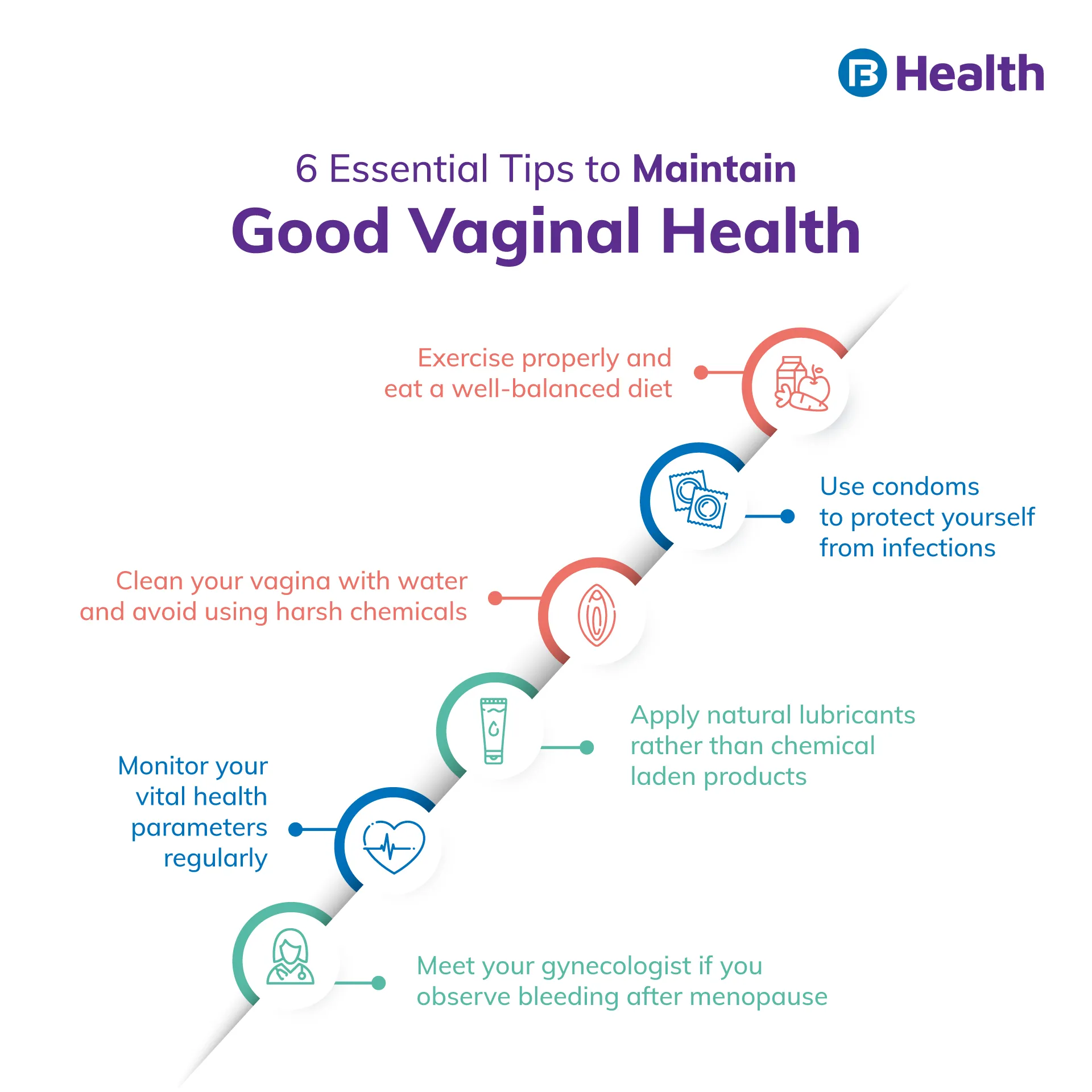
Vaginal Dryness Symptoms
It is common to experience vaginal dryness during sex as well. Some of the notable signs and symptoms you need to watch out for include the following [2]:
- Pain during sex
- Irritation during any physical activity
- Burning sensation
- Itching in the vagina
- Urinary tract and vaginal infections
If the reason for this condition is because of decreasing estrogen levels, you may also experience the following symptoms:
- Your vagina becomes narrow
- You may have low levels of vaginal secretions
- You may experience tightening around your vagina
This condition can affect anyone. So, it is better to meet a doctor immediately if you notice any of the above symptoms. You gynecologist may do a pelvic examination after enquiring about your menstrual cycle. In some cases, you may have to undergo a swab test. The sample will be sent to the laboratory for further analysis.
Different Effects of Vaginal Dryness
This condition can cause soreness in your vagina. You may start to feel disinterested in sex due to the burning and painful sensation in the vagina. Another common effect of this condition is that you may experience bleeding after intercourse. You may also feel a stinging sensation that can cause irritation.
Natural Home Remedies For Vaginal Dryness
Natural oils like seed extract, olive, vegetable, sunflower, or coconut oil may be a healthy at-home cure for vaginal dryness. Before engaging in physical activity, apply natural oils as an external lubricant. On the other hand, oil-based lubricants can harm contraceptives, so if you are of reproductive age, only use water-based lubricants. These are some natural cures for vaginal dryness.
Some doctors advocate regular physical pleasure to help moisten your vaginal tissues. Another alternative is to increase the amount of time between preparation and intercourse. Arousal is linked to vaginal wetness so try looking for methods that may boost your enjoyment before committing to physical activity.
Be it vaginal dryness before period or vaginal dryness after period, there are many home remedies you can try. For reducing vaginal dryness, home remedies can be safe alternatives for you to try.
- Wear cotton underwear to ensure that there is proper air circulation to the vagina. This can prevent its dryness. Synthetic underwear causes more irritation in your vagina due to less airflow.
- Lead an active sexual life to improve the blood flow in your vagina.
- Include foods like seeds, tofu and nuts that are high in phytoestrogens in your daily meals.
- Make sure that you use less of perfumed soaps, especially in your vaginal area to reduce the chances of dryness. Since your vagina has a self-cleaning property, there is no need to use any soap.
Vaginal Dryness Diagnosis
Your health records and a medical examination are used to determine vaginal dryness. To determine the reason, your provider will inquire about your symptoms and any drugs you are currently taking. They could run the following tests:
- A pelvic exam is performed to examine the interior of your womb, which could be thin, dry, and red
- A blood test will be performed to evaluate whether hormonal changes or a medical problem causes vaginal dryness
- A specimen of your vaginal secretions may also be tested by your clinician to check out other reasons or to look for symptoms of infection
Vaginal Dryness Treatment
There are several therapies for vaginal atrophy and painful intercourse (dyspareunia) caused by vaginal dryness.The vaginal dryness treatment can be described as follows:
Medications function in your body by either supplementing or mimicking estrogen.
Low-dose estrogen cream, ring, or tablet
These drugs replace estrogen in the body. Creams and tablets are inserted directly into your vagina using an applicator. Most are prescribed regular daily usage until relief is found, then weekly as required. Estrogen-containing rings are implanted in your uterus for up to three months before removal.
Ospemifene (Osphena)
Osphena is a selective hormone modulator (SERM) that is administered orally. It mimics estrogen in the body and aids in treating painful intercourse caused by vaginal atrophy.
Dehydroepiandrosterone (DHEA)
It's another medicine that functions in your body, like estrogen. It's a vaginal pain reliever that aids menopausal women with uncomfortable intercourse.
Discuss the risks and advantages of medications containing estrogen or estrogen-like compounds with your physician. Estrogen may not even be safe for women who have had prostate cancer or are at significant risk of developing breast cancer.
Tips to Prevent Vaginal Dryness
The best way to avoid this condition is by using a vaginal moisturizer. This moisturizer is specifically designed to be used in sensitive regions. Using it regularly may help you keep it moist and reduce dryness. You can also use water-based lubricants to keep your vagina moist and to provide relief from pain during sex. To improve the strength of your vaginal muscles, doing pelvic floor exercises can also help you a lot.
Additional read: Tips to Boost the Female Reproductive SystemIf you are experiencing this dryness, do not neglect this condition. Seek proper medical advice on time. Your doctor may prescribe some vaginal dryness creams and vaginal moisturizers. You can even use a lubricant for vaginal dryness so that there is less itching and inflammation. Connect to top gynecologists in seconds on Bajaj Finserv Health. book an online doctor consultation or in-person appointment and tackle your vaginal issues on time. Address your symptoms and take proper care of your reproductive health.
FAQ
How do you get rid of dryness down there?
Lubricants make intercourse less painful. Women who are able to have children need to use lubricants in combination with a vaginal moisturizer.
What can cause vaginal dryness?
The major reason for vaginal dryness is low estrogen levels. Estrogen is a hormone that contributes to the health of vaginal tissue by maintaining appropriate vaginal lubrication, tissue flexibility, and acidity. Certain medical issues and hygiene behaviors can also contribute to vaginal dryness.
How can I increase my natural lubrication?
Supplements such as vitamin E, vitamin D, herbal oil, hyaluronic acid, oily fish, and DHEA may help enhance vaginal lubrication, according to research.
Is vaginal dryness normal?
Vaginal dryness is a typical issue that many women experience at some time in their lives.
Can dehydration cause vaginal dryness?
Yes, it may cause vaginal dryness. Hence, it is important to drink adequate liquids and stay hydrated.
References
- https://link.springer.com/article/10.1007/s13167-019-00164-3
- https://www.ncbi.nlm.nih.gov/pmc/articles/PMC6136974/
Disclaimer
Please note that this article is solely meant for informational purposes and Bajaj Finserv Health Limited (“BFHL”) does not shoulder any responsibility of the views/advice/information expressed/given by the writer/reviewer/originator. This article should not be considered as a substitute for any medical advice, diagnosis or treatment. Always consult with your trusted physician/qualified healthcare professional to evaluate your medical condition. The above article has been reviewed by a qualified doctor and BFHL is not responsible for any damages for any information or services provided by any third party.

